
Spiritualized are an English rock band formed in 1990 in Rugby, Warwickshire, by Jason Pierce, formerly of Spacemen 3. After several line up-changes, in 1999, the band centered on Pierce, Doggen Foster (guitar) and Kevin Bales with revolving bassists and keyboard players. The band's current bassist, James Stelfox, has been playing with the band since 2012.

Julian David Cope is an English musician and author. He was the singer and songwriter in Liverpool post-punk band the Teardrop Explodes and has followed a solo career since 1983 in addition to working on musical side projects such as Queen Elizabeth, Brain Donor and Black Sheep.

Timothy Lewis – best known by the stage name Thighpaulsandra – is a Welsh experimental musician and multi-instrumentalist, known mostly for performing on synthesizers and keyboards. He began his career working with Julian Cope in the late 1980s, becoming a member of Cope's touring band. A collaboration with Cope in 1993 followed, forming the experimental duo Queen Elizabeth. In 1997, former Cope guitarist Mike Mooney invited Thighpaulsandra to fill in for the departing Kate Radley on a Spiritualized tour, and he remained with the band until early 2008. In 1998, Lewis also became a member of the experimental band Coil. He has subsequently released several solo albums under the Thighpaulsandra moniker.

Initiation is the sixth album by American musician Todd Rundgren, released May 23, 1975 on Bearsville Records. With this album, Rundgren fully embraced the synthesized prog sound he had begun exploring in more depth in his work with his band Utopia. However, unlike Utopia, in which Rundgren had limited himself to playing guitar, much of the synthesizers on Initiation were played and programmed by Rundgren himself.

Peggy Suicide is the seventh album by Julian Cope. It is generally seen as the beginning of Cope's trademark sound and approach, and as a turning-point for Cope as a maturing artist.
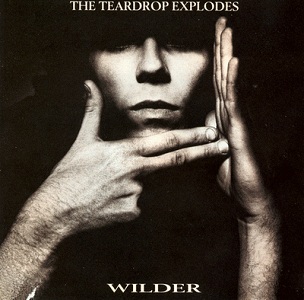
Wilder is the second album by neo-psychedelic Liverpool band the Teardrop Explodes, and the final completed album released by the group.
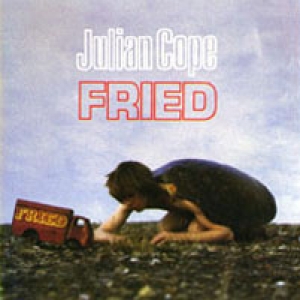
Fried is the second solo album by Julian Cope.

Saint Julian is the third solo album by Julian Cope. It has a very strong pop sound, compared to other Cope releases, and spawned several of his best known tracks.
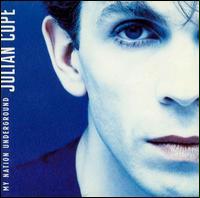
My Nation Underground is the fourth solo album by Julian Cope. It produced three singles including "Charlotte Anne".

Skellington is the fifth solo album by Julian Cope, released in November 1989 as a semi-official bootleg for fan club members only. Originally released on Cope's own CopeCo label, it was later reissued in March 1990 through Zippo Records.

Jehovahkill is the eighth album by Julian Cope, released in 1992. After the critical success of Peggy Suicide (1991), Cope's idea for Jehovakill was to incorporate a krautrock attitude into his music. He began recording the album with musicians Rooster Cosby and Donald Ross Skinner, while co-producing it with the latter. The sessions yielded what Cope considered to be his most sonically experimental material to date. Originally titling the record Julian H. Cope, he sent an eleven track version to Island Records, who initially rejected its release, but gave Cope extra recording sessions for the album. During the extra sessions, in which six extra songs were recorded, the album became harder and was retitled Jehovahkill.

Interpreter is the thirteenth solo studio album, and twentieth album overall by English rock musician Julian Cope, released by Echo Records in October 1996. Particularly inspired by Cope's involvement with the Newbury bypass protest, the record features socially and environmentally-concerned lyrics. The musician worked with numerous guest musicians, including substantial contributions from Thighpaulsandra, resulting in a sprawling album that extends the pop style of 20 Mothers (1995) while incorporating styles of glam pop, space rock, orchestral pop, with string arrangements and electronic overtones. The record is split into two separate parts, "Phase 1" and "Phase 2".
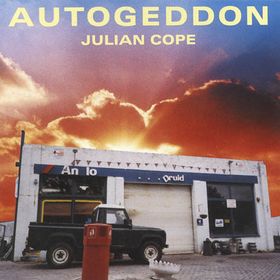
Autogeddon is the eleventh solo album by Julian Cope, released in 1994 on The Echo Label. According to the album's sleeve notes, written by Cope, it was "inspired by Heathcote Williams' epic poem of the same name and a little incident concerning my pregnant wife and £375,000 of yellow Ferrari in St. Martin's Lane, London, England".

Floored Genius: The Best of Julian Cope and The Teardrop Explodes 1979–91 is a compilation album by Julian Cope, released in 1992, combining Cope's work with The Teardrop Explodes and his early solo work. The album contains key singles and notable album cuts from Cope's higher-profile career.
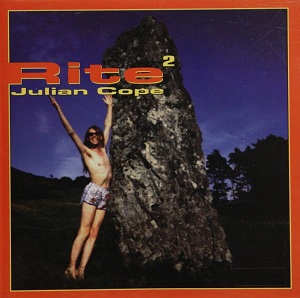
Rite² is an ambient music album by Julian Cope, released in 1997. It is technically Cope's fourteenth solo album, but is also the follow-up to the earlier album Rite and is the second in the Rite series.

"World Shut Your Mouth" is a song by English singer-songwriter Julian Cope, released as the first single from his third album, Saint Julian (1987), on 15 September 1986. The title of the song is the same as the title of Cope's first solo album, World Shut Your Mouth, but the track does not appear on that album.

"Try Try Try" is a song by English singer-songwriter Julian Cope. It was the only single released in support of his 12th solo album, 20 Mothers, and reached number 24 on the UK Singles Chart.

Odin is an ambient music album by Julian Cope, released in 1999. It is Cope's third album of ambient music and his fifteenth solo album overall.
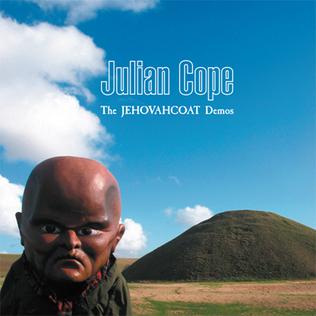
The Jehovahcoat Demos is an album by Julian Cope, released in 2011. It is technically Cope's twenty-sixth solo album, and the mostly instrumental album contains 15 previously unreleased tracks, written and recorded by Cope throughout 1993 in direct response to having been dropped by Island Records in October 1992.

Floored Genius 3 – Julian Cope's Oddicon of Lost Rarities & Versions 1978–98 is a rarities compilation album by Julian Cope, released in 2000 on Cope's own Head Heritage label.




















